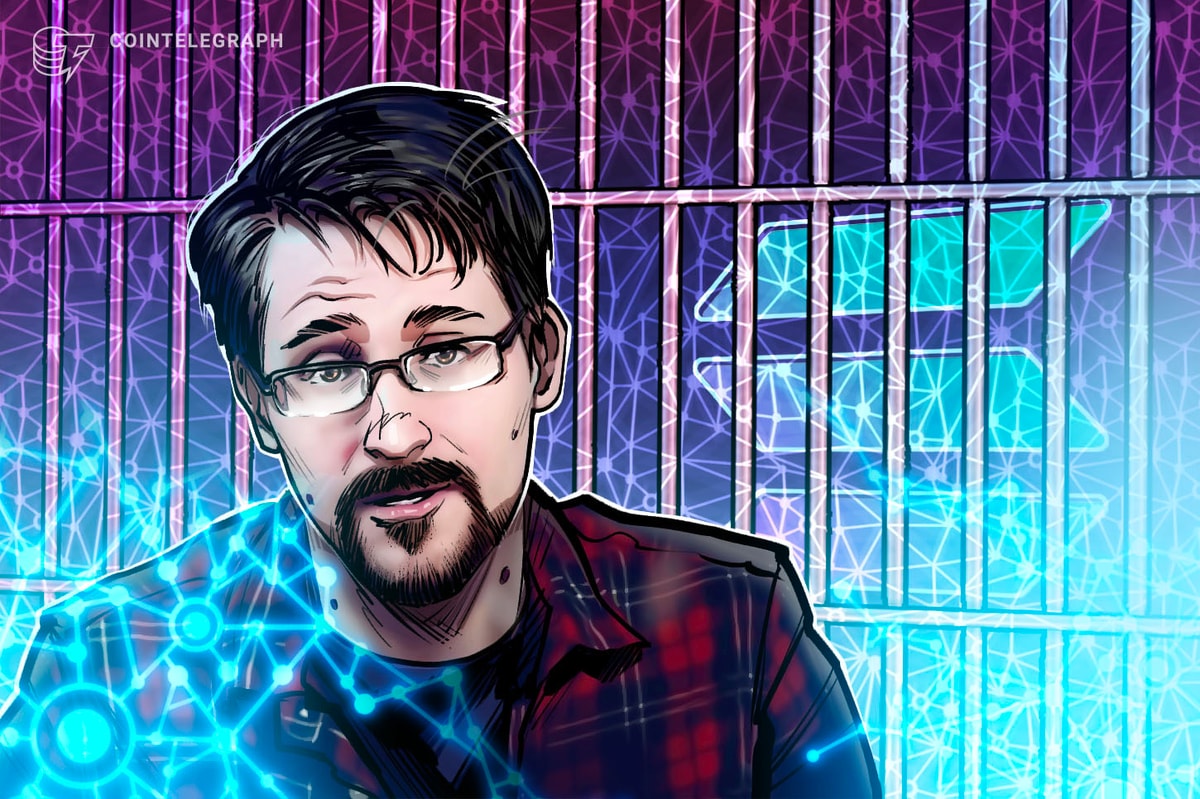Edward Snowden, the privacy advocate and former National Security Agency (NSA) contractor, addressed decentralization during his appearance at Near’s Redacted conference in Bangkok, Thailand.
Speaking on topics like cryptocurrencies, artificial intelligence and blockchain technology, Snowden also addressed the impact of venture capital (VC) on blockchain projects, using Solana as an example.
He described Solana as “born in prison” due to its heavy VC funding, suggesting that financial backing can impede a blockchain network’s ability to operate independently.
While he acknowledged Solana’s rapid growth, Snowden expressed concerns that too much ownership has been ceded to investors, though he noted Solana could “become something” in the future.
Related: ‘Cast a vote, but don’t join a cult’ — Edward Snowden at Bitcoin 2024
Decentralization as a safeguard against surveillance and AI
Throughout his talk, Snowden emphasized the importance of decentralization in countering the expansive surveillance capabilities enabled by AI.
He warned of AI-driven surveillance allowing governments and corporations to process large volumes of personal data in real time, potentially paving the way for live data analysis on a massive scale:
“They want to train it on everything, and they want to be able to say, you know, who looks anomalous […] Look at everybody, look at the whole human body, and pick out anybody who is weird.”
Edward Snowden giving a talk on decentralization, Solana and AI at Redacted on Nov. 10. Source: Cointelegraph
Related: Solana open interest hits record high: Will SOL top $200?
VC funding influence
Snowden’s critique of Solana’s early VC investment focused on how such funding could undermine the decentralization and autonomy of blockchain networks.
He cited concerns echoed previously during a vote by venture capital firm Andreessen Horowitz (a16z) against a proposal to deploy Uniswap v3 on the BNB Chain.
The venture firm used its 15 million Uniswap (UNI) token holdings vote on Feb. 5 to outweigh the initial 20 million (80.28%) votes for “yes” against the 4.9 million (19.72%) votes for “no.”
This instance, Snowden suggested, highlighted the control that large, centralized stakeholders can wield over decentralized projects.
Bubble infographic of a16z share of the votes against the proposal. Source: Tally
Related: Coinbase wrapped Bitcoin deploys on Solana, aimed at growing DeFi market
Open source FTW
Snowden also advocated for open-source tools as an essential medium for countering the centralization of control and touted its ability to empower the individual.
He described open-source models as “incredibly empowering,” enabling users of open-source models to understand and apply blockchain technologies “much better.”
“The bottom line is, you guys can do this yourself […] I’m telling you guys you don’t understand, if you’re not using it, you need to use this […] the sky’s the limit.”
Snowden sees open-source AI as an opportunity for individuals to maintain autonomy in a centralized space, encouraging listeners at the talk and users globally to adopt these tools.
Magazine: Real life yield farming: How tokenization is transforming lives in Africa
